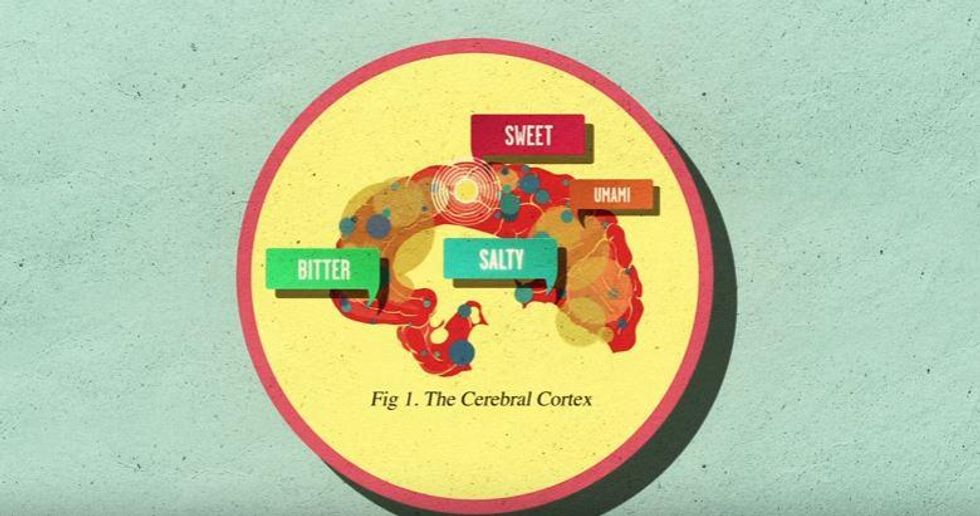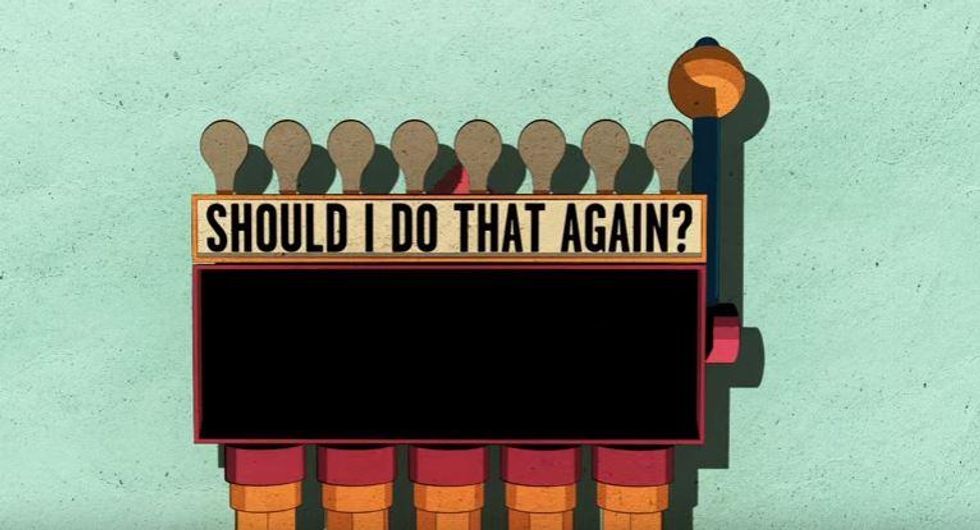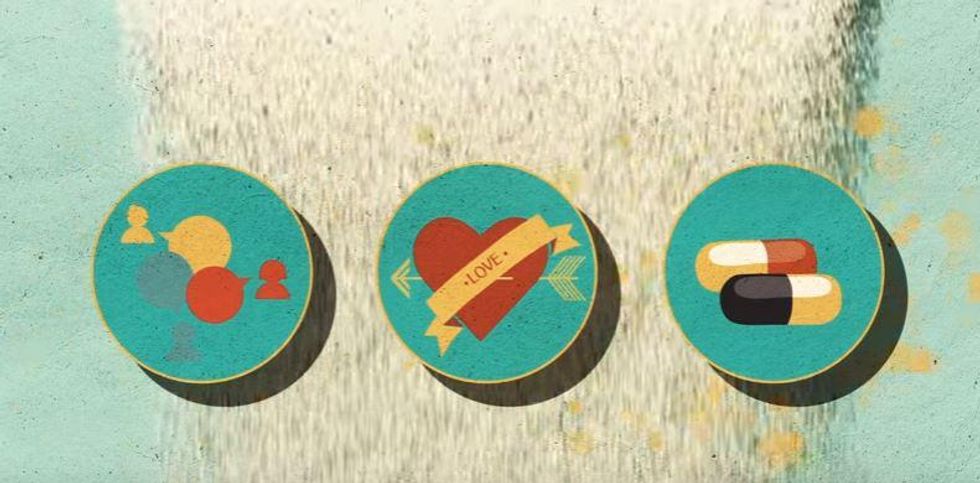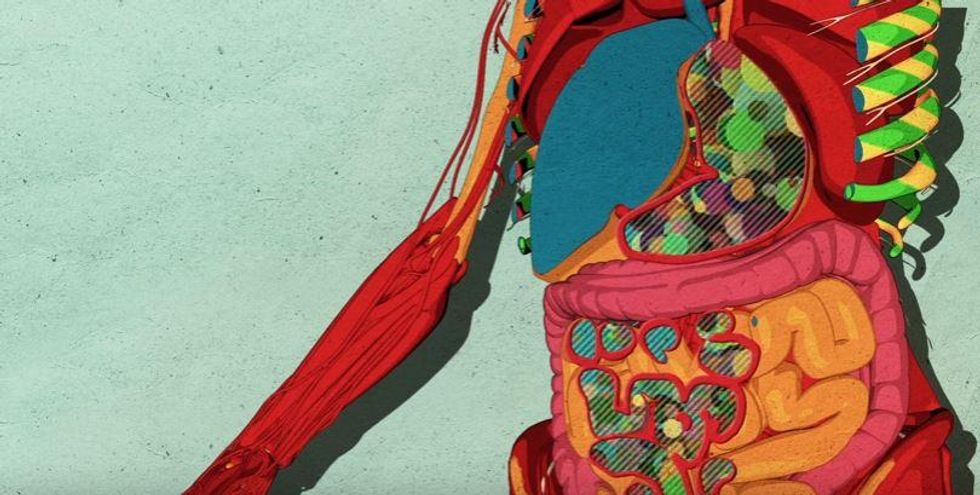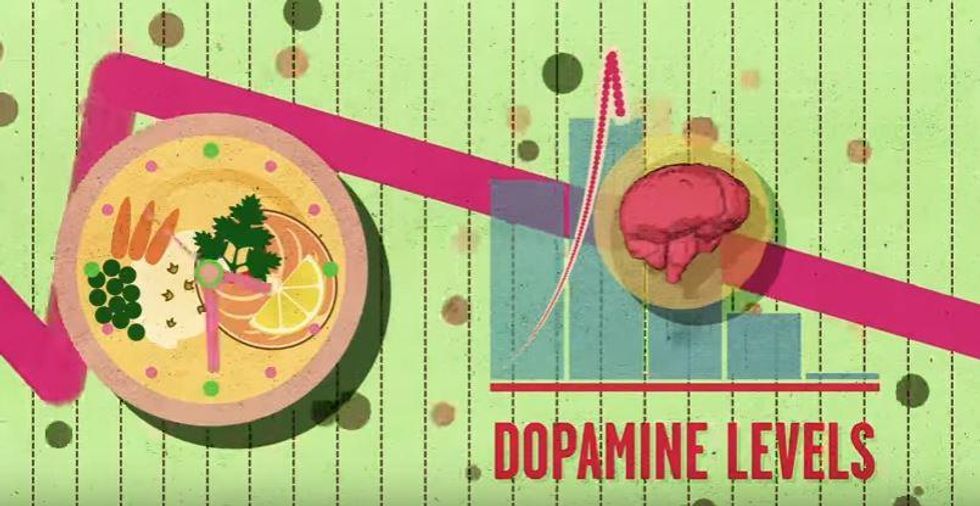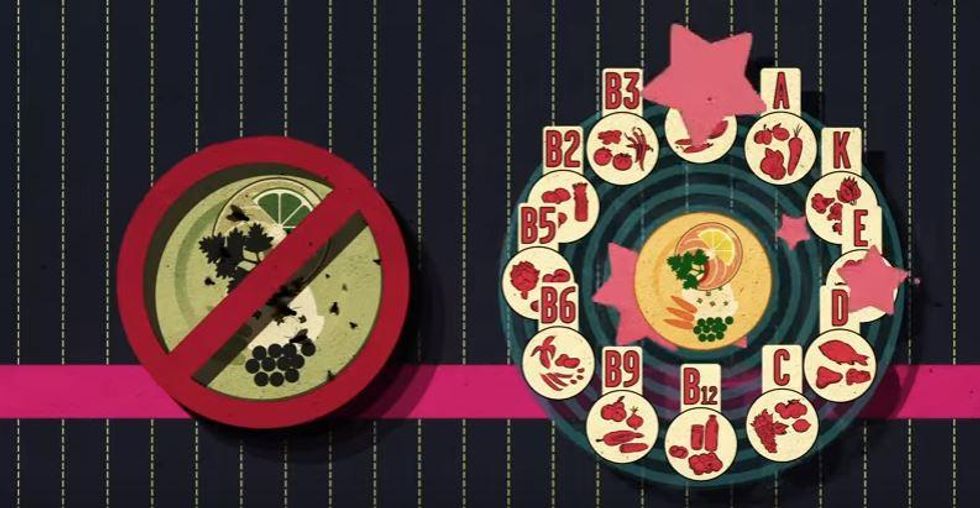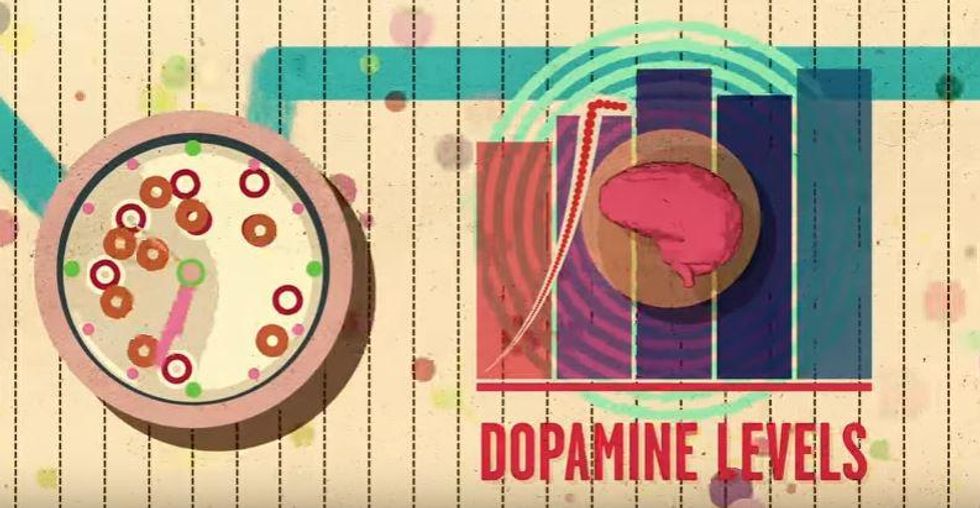News
Bethan McKernan
May 17, 2016
Ain't nobody out there who's never craved a sugar fix.
But as you sit there shaking thanks to the come down that follows a Cadbury's or Fanta induced high, do you blame your lack of self control? Your inability to reason through the consequences of actions?
Yeah we didn't think so. But if you needed the excuse, Ted Ed's Nicole Avena has come up with a brilliant animation that breaks down the chemistry behind why you think you need sugar - and what happens to your brain in the process.
When sugar hits your tongue, it activates your sweet taste buds, which in turn send signals to receptors in the cerebral cortex.
That signal in turn activates the brain's reward system - a complicated system of electrical and chemical pathways which answer a very simple question your brain is asking itself:
And the answer sugar gives you is: hell yes.
Drugs, social and sexual interaction also activate your brain's reward system.
But we all know that overstimulating it has negative effects such as loss of control, addiction and tolerance.
Anyway. Getting back to that bit of sugar you just ate: it goes to your gut, which also has sugar receptors, and is supposed to send signals to you brain to let you know you're full or need to produce more insulin to deal with the sugar you're eating.
While healthy foods trigger dopamine, our brain's reward currency, after time the levels they produce wear off as we get bored of the same meal again and again.
Humans evolved to need new foods so we could a) know when food is bad and b) because the more varied our diets, the more likely we are to get all the nutrients we need.
But with sugar, the dopamine rewards don't wear off: those levels stay sky high...
...which is why sugar functions a little like a drug in that we crave it.
Check out the nifty animated walkthrough below:
More: These are the 10 most sugary breakfast cereals (and the 10 least)
Top 100
The Conversation (0)
